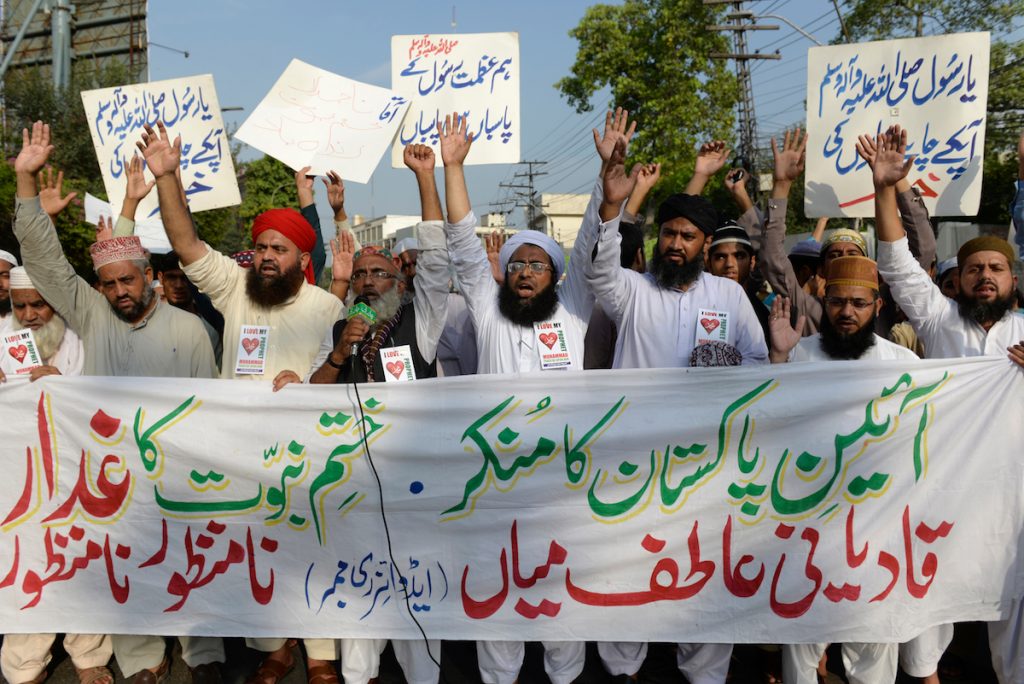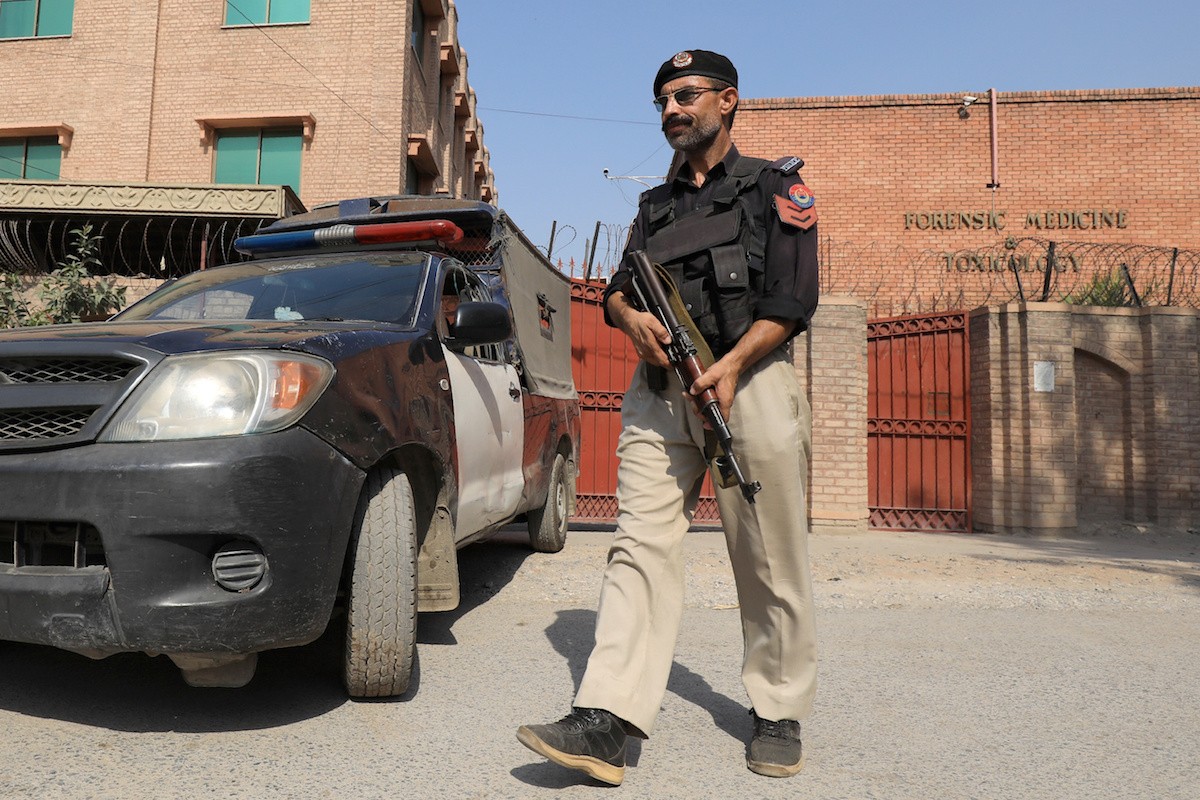The US State Department has called on Pakistan to reform its blasphemy laws following the killing of an American citizen inside a courtroom in the Pakistani city of Peshawar.
Pakistan’s blasphemy laws have long been the target of fierce criticism from international human rights groups, which have demanded their repeal.
Human Rights Watch has reported that the laws “provide a pretext for violence against religious minorities, as well as arbitrary arrests and prosecution.”
The US State Department condemned the killing last week of Tahir Naseem, 57, of Illinois, who was on trial in Pakistan for allegedly claiming to be a prophet.
“We urge Pakistan to take immediate action and pursue reforms that will prevent such a shameful tragedy from happening again,” said the US State Department post on Twitter.
State Department spokesman Cale Brown said the United States had worked with Naseem’s family since his detention in 2018.
He said the department has earlier alerted senior Pakistani officials to Naseem’s case “to prevent the type of shameful tragedy that eventually occurred.”
Nassem was killed inside the courtroom in Peshawar while standing trial for blasphemy on July 29.
The suspect, who was only identified as Faisal, son of Abdullah, walked into the courtroom and shot Naseem multiple times at close range.
In a video, which was posted and went viral on social media, the gunman was heard saying, “He is the enemy of Islam … the enemy of Pakistan.”
The suspect claimed that the prophet Muhammad spoke to him in dream and told him to kill Naseem, who was arrested and detained for claiming to be a prophet.
In a statement, the Pakistani Foreign Ministry said that “the alleged killer has been arrested and a special team constituted to investigate the case.”
“The matter will be dealt with in accordance with the law,” it said, adding that constitutional rights and protections would be “fully enforced and implemented.”
International human rights groups have been demanding the Pakistani government to repeal its blasphemy laws, which they claimed to be “often abused.”
A person found guilty of blasphemy is sentenced to death while merely allegations of blasphemy could trigger violence or murder.
Human rights groups claimed that some of those who were accused of the crime have been murdered even before the trial was over.
Ironically, while many people are on death row for blasphemy, the Pakistani government has never carried out a single death sentence.
A Washington Post report said that most of those accused of blasphemy, like Naseem, belong to the Ahmadi Muslim minority, which is viewed by many Muslims in Pakistan as heretical.

A few hours after the killing of Naseem, a hashtag started trending on social media expressing support and praises to the gunman as a hero.
One of the most prominent blasphemy cases in Pakistan that made international headlines was that of Asia Bibi, who was charged and imprisoned for eight years before she was acquitted.
Her release led to violent riots. She sought asylum in Canada but still receives threats and intimidation from extremists.
In 2018, the US State Department named Pakistan as a “country of particular concern” for religious freedom violations.
There are more than 70 countries across the world that have laws prohibiting blasphemy or “harming religious feelings.”
Blasphemy is defined as speaking insultingly about a particular religion or god.
An estimated 4 million Ahmadis live in Pakistan, a country of 212 million. They experience widespread abuse and discrimination.







